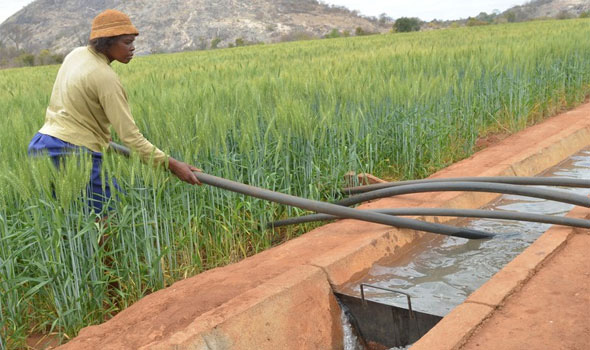Experts advise against chemical treatments for fall armyworm
The Migratory Pests and Biosecurity department has advised farmers with mature crops not to use chemical treatment for controlling fall armyworm.
This recommendation is based on concerns that such treatments could lead to chemical residues in the harvested maize, potentially posing health risks to consumers.
Farmers are encouraged to explore alternative, safer methods of pest control to ensure the safety and quality of their produce.
In an interview recently, acting deputy director for Migratory Pests and Biosecurity in the Ministry of Lands, Agriculture, Fisheries, Water and Rural Development, Mr Simbarashe Nyamasoka said it was important not to spray chemicals on the maize cobs affected by the pest.
“We are encouraging most of the farmers who have had their crops affected by the fall army worm not to spray chemicals on those cobs because that will result in chemical residues in that very same maize crop.
“Spraying chemicals on the crop at developing stage is not advisable because soon, people will be milling the maize for consumption and they will end up consuming chemicals,” he said.
Mr Nyamasoka said they were also training farmers across the country on fall armyworm identification, biology, ecology, and management.
Farmers are also being educated farmers on differentiating fall armyworm from African armyworm for effective control.
“In most areas, the fall armyworm is now under control. Farmers have implemented different measures including the integrated approach where some were doing the cultural methods to control the worm while others used the biological ways. Most farmers used chemicals which is the most effective control method,” he said.
“We are training extension officers and farmers across the country. We have covered Watsomba, Chipinge and Chimanimani.
This is more like a Training of Trainers (TOT) that we are running and we are hoping that we will cover many farmers and extension officers.
“We will also cover areas in Masvingo including urban areas as a way to try and combat the fall army worm problem.
Mr Nyamasoka urged farmers to practice crop rotation and chemicals control methods.
He said it wa advisable to use pesticides, incorporating different active ingredients periodically and not to repeatedly use the same active ingredient from a specific pesticide, as this can lead to the development of resistance in pests like the fall armyworm.
Mr Nyamasoka said farmers who had already begun harvesting their maize could destroy affected stalks or feed to livestock as the crop residues may harbouring some fall army worm trying to evolve.-herald











